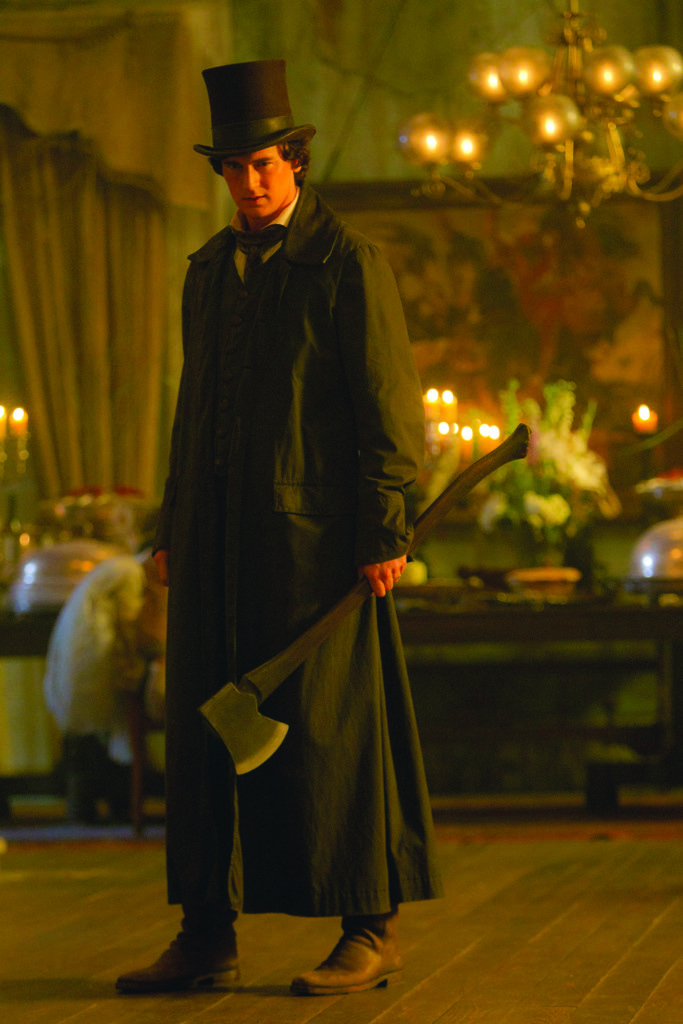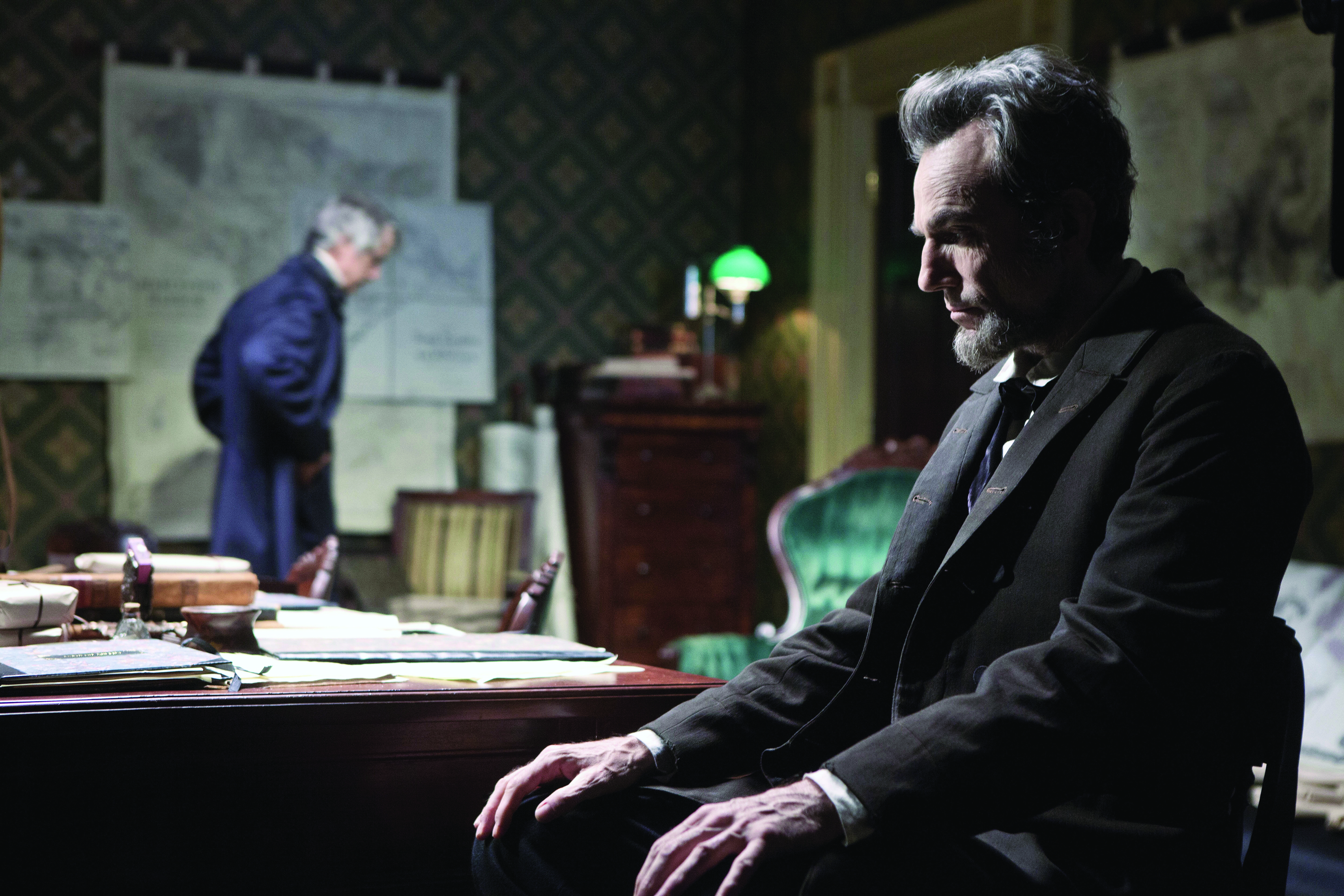Films from 2012 are relevant to continuing conceptions of the Civil War
A decade ago I wrote for Civil War Times about Glory as a turning point in Hollywood’s long relationship with the Civil War. In 1989, the film introduced millions of viewers to black Union soldiers and anticipated a cinematic turn toward emancipationist narratives. Steven Spielberg’s Lincoln and Timur Bekmambetof’s Abraham Lincoln: Vampire Hunter, both released in 2012, interpret the 16th president in ways that reflect and reinforce the current ascendency of the emancipation cause memory of the conflict. Daniel Day-Lewis’ transcendent performance in Lincoln, which earned him an Oscar, virtually assures the film’s continuing relevance to popular conceptions of the war.
Lincoln signals its focus on emancipation in the first scenes. It opens with black soldiers fighting Confederates and then moves into a conversation between Lincoln and one of the African-American combatants. The soldier mentions Rebel atrocities against USCTs, after which one of his comrades joins the conversation to lecture Lincoln about discrimination in the Army and the need to grant black men the vote. The scene ends, in stunningly improbable fashion, with the second man quoting the “new birth of freedom” passage from the Gettysburg Address to the president (my August 2016 column addresses the implausibility of anyone’s quoting from the speech at the time).
The film’s central narrative concerns Lincoln’s determination in January 1865 to secure passage of the 13th Amendment in the House of Representatives.
Spielberg repeatedly instructs viewers about emancipation’s centrality. Tad Lincoln examines photographs of slaves and asks Elizabeth Keckley if she was beaten while in bondage; Mary Todd Lincoln urges her husband not to squander political capital by pushing for emancipation; and Radical Republicans debate whether to punish Lincoln for dragging his feet on their proposals relating to slavery. Spielberg reproduces the rhetorical give-and-take on the floor of the House and, through a Missouri couple named Jolly, conveys a common white attitude that emancipation made sense only if connected directly to saving the Union.
Daniel Day-Lewis’ Lincoln leaves no doubt that, for Spielberg at least, the war was preeminently about ending slavery. The key moment comes when Lincoln grows agitated at the absence of clear support in his Cabinet to push for immediate passage in the House. He slams his hand on the table and says, “I can’t listen to this anymore. I can’t accomplish a god damned thing of any human meaning or worth until we cure ourselves of slavery and end this pestilential war.” Looking at his advisers and pounding the table again, he continues: “And whether any of you or anyone else knows it, I know I need this. This amendment is that cure. Blood’s been spilt to afford us this moment,” and Lincoln wants House action “Now! Now! Now!” “Abolishing slavery by constitutional provision,” he asserts in closing, would settle the fate “not only of the millions now in bondage but of unborn millions to come.”
The final vote in the House supplies the film’s emotional climax, and Spielberg ably portrays the historic moment of unrestrained celebration among Republicans and the mixed gallery of white and black spectators. Very near the film’s end, Lincoln speaks the passages from his Second Inaugural dealing with slavery to reinforce the message of a war waged for emancipation.

Lincoln knows all friends of freedom must take on the slaveholders, prominent among them vampires trafficking in human beings, and eventually pursues the presidency to follow this path.
Abraham Lincoln: Vampire Hunter, although radically different in tone, matches Lincoln’s emancipationist theme. Indeed, it presents the 16th president as a lifelong abolitionist. During his boyhood in Indiana, young Abe sees his black friend Will being whipped, tries to help him, and receives blows himself. Thomas Lincoln intervenes to protect the boys, and Nancy Hanks Lincoln, also apparently an abolitionist, intones, “Till every man is free, we are all slaves.” A slave-catching vampire, it turns out, had ventured into non-slaveholding Indiana and administered the beating. That villain later kills Lincoln’s mother, leading Abe to become a vampire hunter and avenge her death.
The mature Lincoln enters politics and delivers a speech that rivals what Spielberg accomplished with the presidential outburst directed at the Cabinet. “The demon of slavery is tearing our country apart,” Lincoln tells the venue: “We must stand up. We must stand strong and fight, fight for the very soul of our nation.” He insists, “Until every man is free, we are all slaves.” Lincoln knows all friends of freedom must take on the slaveholders, prominent among them vampires trafficking in human beings, and eventually pursues the presidency to follow this path.
Entertaining events ensue, as Abe wields a wicked silver-clad ax against proslavery vampires. Union victory at Gettysburg finally vanquishes the vampires/Rebels, and Lincoln travels to the battle site with Will for a vignette featuring the “new birth of freedom” portion of the Gettysburg Address, thereby reminding viewers that slavery is dead.
An emancipationist Lincoln presiding over a war waged to end slavery resonates with 21st-century audiences. Other recent films and television projects, among them Mercy Street (PBS, 2016–17) and director Gary Ross’ Free State of Jones (2016), underscore the degree to which the emancipation cause narrative has taken hold in Hollywood studios. Films focused on slavery, among them 12 Years a Slave (2013) and The Birth of a Nation (2016), link well with those dealing more specifically with the Civil War.
This overall development affords wonderful teaching opportunities regarding historical memory when juxtaposed against the dominant influence of the Lost Cause for more than half of the 20th century in The Birth of a Nation (1915), Gone With the Wind (1939), and innumerable lesser films.
Yet the new emphasis carries dangers of misrepresentation. First to last, Lincoln, who understood the loyal white citizenry, framed the war as one for Union. As late as his annual message to Congress in December 1864, he cast the 13th Amendment as one of the tools to achieve the greater goal of Union. But Hollywood seldom traffics in historical subtlety. An uncomplicated and powerful story line, something Lincoln and Vampire Hunter deliver, packs greater punch.
This story appeared in the August 2020 issue of Civil War Times.





